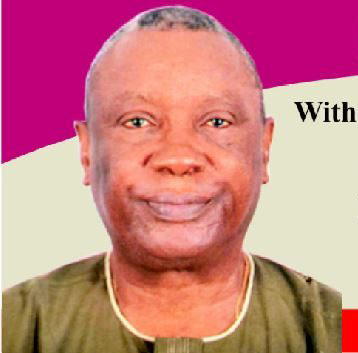The supreme powers of the President, by Eric Teniola

Shortly after being sworn in as President on May 29,1999, President Olusegun Obasanjo (88) delayed signing the Proclamation of the first sitting of the National Assembly. The delay lasted a few days during which there was suspense. Subsection 3 of Section 64 of the 1999 Constitution states that: “Subject to the provisions of this Constitution, the person elected as the President shall have power to issue a proclamation for the holding of the first session of the National Assembly immediately after his being sworn in, or for its dissolution as provided in this section”.
The delay in signing the proclamation by President Obasanjo was deliberate. The then ruling party PDP zoned the Senate Presidency to the South-East. President Obasanjo wanted his choice to be the Senate President. His choice was Senator Evan Enwerem. The choice of the majority of the PDP Senators was Senator Ike Omar Sanda Nwachukwu (84), who represented Abia North.
Senator Nwachukwu was a retired General in the Army, a Minister of Foreign Affairs from December 1987 to December 1989 and also the former Military Governor of Imo State from January 1984 to August 1985. General Nwachukwu’s mother was a Princess from the Katsina Royal family. President Obasanjo’s deputy at that time, Turakin Adamawa, Alhaji Atiku Abubakar, wanted Dr. Chuba Wilberforce Okadigbo (17 December 17, 1941 – September 25, 2003). Dr. Okadigbo was a member of the Peoples Democratic Movement, PDM, founded by Major General Shehu Musa Yar’Adua (March 5, 1943 – December 8, 1997), of which Atiku belonged.
President Obasanjo reasoned that a retired General could not be President and another retired General be elected as Senate President, hence he decided on Senator Enwerem. It was at that time that the President appointed the Managing Director of Atoto Press in Ilorin, Major-General(rtd.) Abdullahi Mohammed (86) as his Chief of Staff. It would have been an overkill for a retired General to be President, a retired General to be Chief of Staff and a retired General to be the Senate President.
Major-General Mohammed was National Security Adviser to General Abdusalami Abubakar (83) from 1998 to 1999; Director General of the National Security Organisation from 1976 to 1979; and Governor of Benue-Plateau State, Nigeria, from July 1975 to February 1976 during the military regime of General Murtala Mohammed. In July 1975, Major-General Mohammed was Director of Military Intelligence, and formed and executed the 1975 coup d’état plan with other officers, including Major General Shehu Musa Yar’Adua, Colonel Joseph Nanven Garba, Colonel Muhammadu Buhari and Colonel Ibrahim Taiwo, to depose General Yakubu Gowon (90), after which they transferred power to General Murtala Ramat Muhammed (November 8, 1938- February 13, 1976) as head of state. Immediately after the coup, he was appointed Governor of Benue/Plateau State.
At the time, President Obasanjo appointed General Mohammed as Chief of Staff, the PDP Senators had resolved that General Ike Nwachukwu was to be their Senate President. In fact, he was coasting home to victory and this did not go down well with the President. To halt Senator Nwachukwu’s victory, President Obasanjo delayed signing the Proclamation. The matter was later resolved following the intervention of the Chairman of the party, Chief Solomon Daushep Lar (April 4, 1933 – October 9, 2013) and the chairman of the Board of Trustees, Chief Sunday Bolorunduro Awoniyi, the Aro of Mopa, Kogi State (April 30, 1932 – November 28, 2007).
Eventually, Senator Nwachukwu stepped down and left the race for Dr. Okadigbo and Senator Enwerem. Chief Evan Enwerem (October 29, 1935 – August 2, 2007) had earlier served as the governor of Imo State from January 3, 1992 – November 17, 1993.
Armed Forces.”
To be concluded
•Teniola, a former director at the Presidency, wrote from Lagos.
The post The supreme powers of the President, by Eric Teniola appeared first on Vanguard News.

 yarkarkara
yarkarkara 





